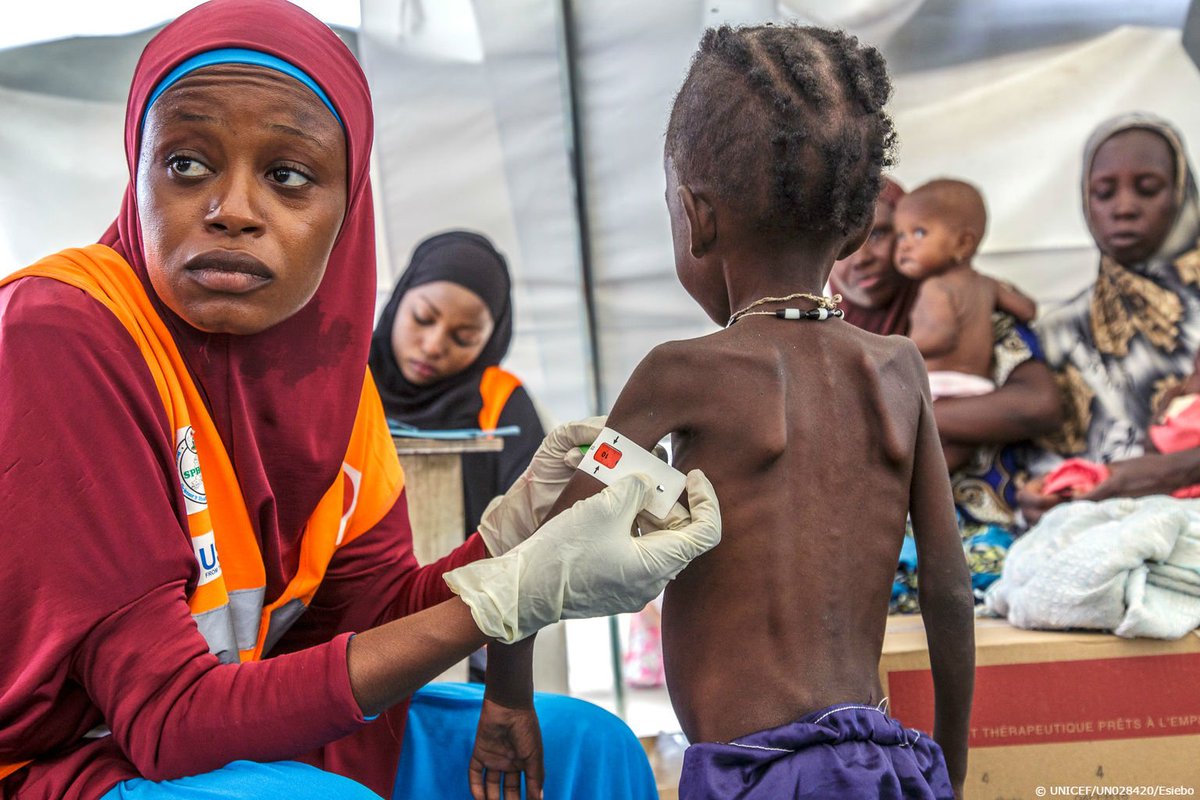The Chief Executive Officer of the Nigerian Economic Summit Group (NESG), Mr Laoye Jaiyeola, has said that malnutrition deficiency is of great concern in Nigeria with 20.5 million new babies and having low weight at birth due to nutritional deficiency.
M. Jaiyeola stated this on Friday when the Nigerian Economic Summit Group (NESG), in collaboration with eHealth Africa and the Civil Society Legislative Advocacy Centre (CISLAC), held a webinar with the theme “Developing an Integrated Food Fortification Compliance Framework to address Micronutrient Deficiencies.”
While delivering the welcome statement, the CEO of the NESG, Mr Laoye Jaiyeola, said that “malnutrition deficiencies are of great concern to the NESG, with 20.5 million new babies and 14.6% having low weight at birth and one out of five children experiencing stunted growth. This is just as the COVID-19 pandemic further exposed the economic vulnerabilities of African countries as 155 million people have been pushed into extreme poverty.
“In Nigeria and the rest of Sub-Saharan Africa, micronutrient deficiencies are common among the people due to over-farmed, depleted and nutrient-lacking soils, low nitrogen in most African soils, high soil acidity, infestation of crops by pests and diseases, and the adverse effects of climate change.”
The CEO of the NESG reiterated the need for stakeholders to continually ramp up food fortification to ensure that people don’t just eat but eat well in a way that reduces micronutrient deficiencies.
During the panel session, Senior Technical Specialist for Quality and Safety, Global Alliance for Improved Nutrition (GAIN), Mr David Morgan, stated that micronutrient deficiency in Nigeria is significant and the national food consumption survey shows there is a massive burden of waste in children in Nigeria, with vitamin A deficiency and anaemia being more prevalent among children.
More so, Mr Morgan noted that some of the challenges related to food fortification compliance include an absence of clear communication of requirements from regulators for smaller industries, the cost of food fortification, monitoring of production and access to trusted, reliable and affordable testing for regulators and producers.
Also speaking, the Executive Director of CISLAC, Mr Auwal Ibrahim Musa Rafsanjani, who Mr Muritala Muhammed represented, stated that poverty is deep-rooted in the country and irrespective of the quantity of food, if the proper nutrients are not consumed, the problems of malnutrition will persist.
He noted that sensitization and awareness creation is important, including effective collaborations between all stakeholders to ensure that malnutrition is effectively tackled.

 Join Daily Trust WhatsApp Community For Quick Access To News and Happenings Around You.
Join Daily Trust WhatsApp Community For Quick Access To News and Happenings Around You.


